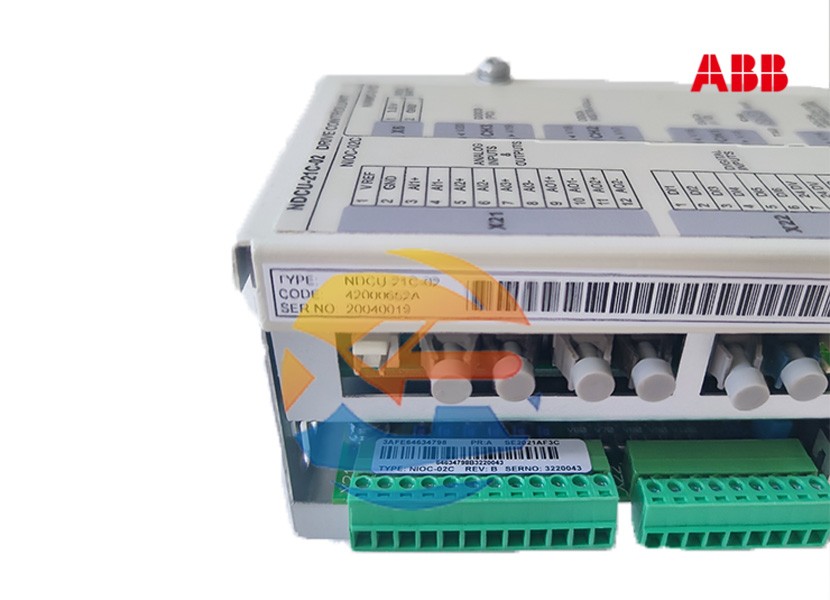The true value of a control system component is revealed by its performance in the field. The ABB NDCU-21C controller is a workhorse within the Symphony Harmony DCS, deployed in some of the world's most demanding industrial environments. This article explores the key applications of the NDCU-21C, demonstrating how it delivers reliability, efficiency, and control in power generation, water treatment, and other process industries.

The Role of a DCS Controller in Complex Plants
In a large plant, the process is divided into functional areas. A single, centralized computer cannot effectively control everything. A DCS like Symphony Harmony distributes the intelligence, with a dedicated controller like the NDCU-21C managing each major area. This modular approach improves reliability, simplifies troubleshooting, and allows for easier expansion.
Key Application Areas for the ABB NDCU-21C
1. Power Generation: Boiler and Turbine Control
In a thermal power plant, the boiler-turbine-generator unit is the core.
- Boiler Control Unit: One NDCU-21C can be dedicated to the combustion control system. It manages the complex interplay of fuel, air, and feedwater to maintain steam pressure and temperature while maximizing efficiency and minimizing emissions. It executes critical control loops for fuel valves, fan speeds, and damper positions.
- Turbine Control Unit: Another NDCU-21C can be tasked with turbine control. It regulates steam admission valves to control turbine speed and load, and manages auxiliary systems like lubrication oil. The redundancy of the NDCU-21C is critical here, as a turbine trip can have significant financial consequences.
2. Water and Wastewater Treatment
Water facilities rely on automation for consistent quality and regulatory compliance.
- Pump Station Management: An NDCU-21C can control multiple pumps in a station, managing sequences to ensure even wear, prevent water hammer, and respond to changes in demand.
- Chemical Treatment and Dosing: It provides precise control over the dosing of chemicals like chlorine or coagulants, based on flow measurements and water quality analyzer inputs. The controller's ability to handle complex proportional-integral-derivative (PID) loops is essential here.
- Membrane Filtration Control: For advanced treatment like reverse osmosis, the NDCU-21C can manage pressures, flows, and backwash cycles for the membrane trains.
3. Other Process Industries
The NDCU-21C is also found in:
- Chemical Plants: Controlling batch reactors, distillation columns, and material handling systems.
- Pulp and Paper Mills: Managing digesters, paper machines, and chemical recovery boilers.
The Tangible Benefits of Using the NDCU-21C
- Improved Process Reliability and Uptime: Redundant controller configurations prevent unplanned shutdowns caused by a single hardware failure.
- Enhanced Efficiency: Precise regulatory control leads to optimal resource use (e.g., less fuel, fewer chemicals), reducing operating costs.
- Centralized Operations: Operators in a control room get a unified view of the entire process, with data from all NDCU-21C controllers available on their workstations.
- Easier Troubleshooting and Maintenance: Because control is distributed, a problem in one area (e.g., the boiler) can often be isolated and diagnosed without affecting other running parts of the plant.
Conclusion
The ABB NDCU-21C is far more than a component in a cabinet; it is an active participant in the day-to-day operation of critical infrastructure. Its application in managing boilers, turbines, and water treatment processes demonstrates its capacity to handle complex, time-sensitive control tasks. For plant managers and engineers, the NDCU-21C represents a foundation for achieving operational excellence, safety, and compliance.
